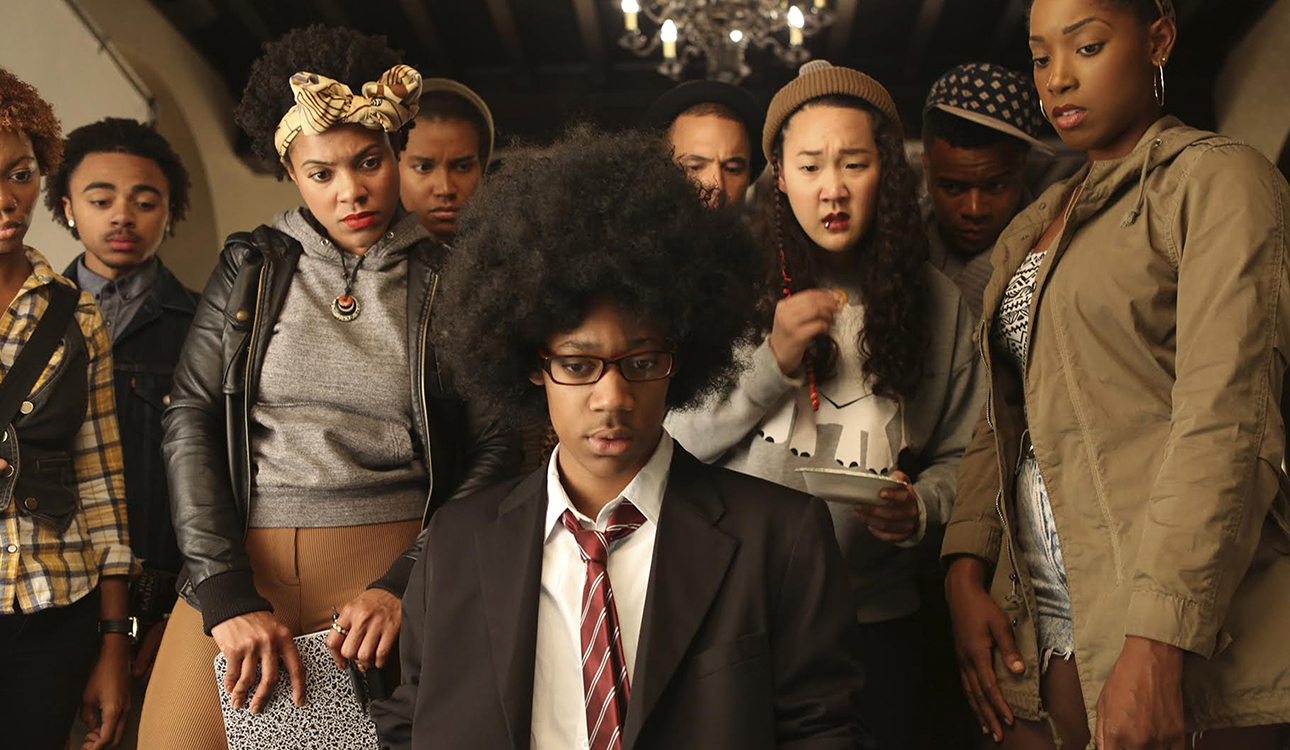
Tribune News Service
By Paula Solis
City Editor
Racial tensions in America have increased in the past year, making headlines in a major way that has caused some to wonder how to approach the topic. “Dear White People” has taken the guesswork out of the equation and done it for us all.
The movie is set at the fictional Winchester University and focuses on the struggles of a group of black students at a white-majority college. The students are threatened by a proposal to mix up housing assignments so students no longer socially divide themselves.
Samantha White, played by Tessa Thompson, leads the charge for the black community by running for head-of-house at the predominately black student living center and plans protests in response to the school’s proposed changes.
When White isn’t holding a picket sign, she’s hosting a campus radio show called “Dear White People” that targets people’s inadvertent racism in an uncomfortable manner. She goes places people normally only venture into in private circles. She says things such as, “Dear white people, please stop touching my hair. Does it look like a petting zoo to you?”
But Justin Simien, the movie’s writer and director, isn’t just writing lines that make us laugh out loud because of their ridiculous levels of awkwardness – which they do in fact do.
He’s also highlighting issues of social segregation that threaten cohesion. It’s done with just the right amount of comedy that doesn’t dismiss the real question: Why do some people feel a need to socially identify based on race?
This point is highlighted by White’s character, who in one scene insists students work to “bring black back,” and in others makes out with a white guy while battling issues of self-doubt because she is half-white.
The movie is by no means an attack on white people for pushing other cultures away, as the title or trailer might insinuate to some, but it’s about cultures within cultures and the identity crises that most everyone experiences during their college years.
Lionel Higgins, played by Tyler James Williams, is gay, black and a student journalist who feels misunderstood by the black and white communities. His character wonderfully demonstrates the desperation to connect with the right social group while fearing that something as simple as listening to Mumford & Sons might in someway redefine you and cause you to not belong.
Essentially, the movie unfolds the reality that so many people are walking around aimless in life, only pretending to understand themselves, possibly leading to their own detriment.
A deep message for a satire, but it’s there between all the spiffy one-liners.
Of course, the movie is not without its foibles. The internal struggle for acceptance within the black community conflicted with the white versus black theme. This makes it hard to say whether the movie was more about one conflict than the other. Issues of homophobia also appear but are only lightly touched upon before being dismissed.
But no one should expect all these issues to be perfectly balanced or solved in one film, and the real mistake may have been Simien’s attempt to do so.
However, Simien did achieve a great deal with his first go at feature filmmaking. He reminded audiences that satirical movies aren’t always just ridiculous, over the top comedies; sometimes they have messages that can lead to conversations that actually matter.
This movie has a clear agenda to teach people, move them to laughter and bring them together.
Simien took a calculated risk with the film. He could say something controversial or say something that’s already been said a million times before. He went with the former, and it paid off.






